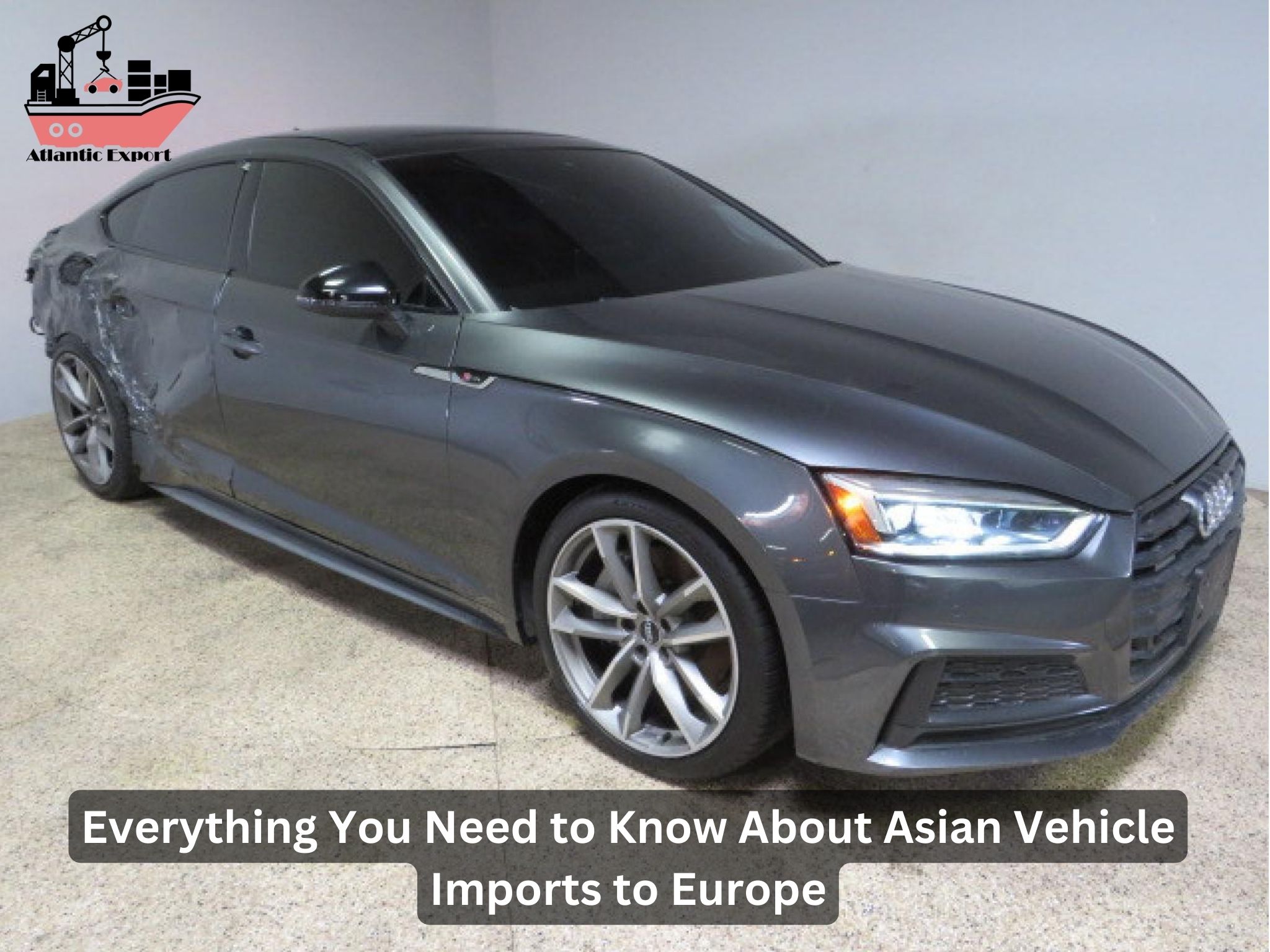Importing Asian vehicles into Europe has become increasingly popular over the years, with enthusiasts, businesses, and collectors seeking unique models, high-quality products, and competitive prices from countries like Japan, China, and South Korea. The process involves navigating complex regulations, duties, and logistical challenges. This comprehensive guide provides insights into the import process, applicable taxes, and other crucial details for bringing Asian cars and vehicles into Europe.
Why Import Asian Vehicles to Europe?
Asian manufacturers such as Toyota, Nissan, Hyundai, and BYD have become global leaders in the automotive industry. Their vehicles are renowned for their reliability, advanced technology, and innovative designs. Japanese Domestic Market (JDM) cars like the Nissan Skyline or Toyota Supra hold a special place among enthusiasts. Meanwhile, Chinese automakers such as BYD and SAIC are leading the charge in electric vehicle (EV) development.
Benefits of Importing Asian Vehicles:
- Access to unique models unavailable in Europe.
- Competitive pricing due to lower production costs in Asia.
- Cutting-edge features in electric and hybrid vehicles.
- High resale value, especially for limited-edition JDM cars.
- Opportunity to customize imported vehicles with rare car parts.
The Import Process: A Step-by-Step Guide
1. Research and Purchase
Begin by identifying the vehicle you want to import. Popular options include used cars, new vehicles, and specialty models such as JDM imports or electric vehicles from Asian brands.
- Use reliable sources such as auctions (e.g., Osaka Auto Auction or USS Auction), certified dealers, or online platforms.
- Verify the vehicle’s history, including mileage, condition, and legal ownership.
- Confirm availability of the Certificate of Conformity (CoC) for easier registration in Europe.
2. Understand European Standards
Every imported car must comply with European Union (EU) regulations, including:
- Emission standards: Ensure the car meets EU norms for CO2 emissions.
- Type approval: The vehicle must pass homologation tests for safety and environmental standards.
3. Shipping and Customs Clearance
Choose a reliable shipping company to transport the vehicle from Asia to Europe. Shipping options include:
- Roll-on/Roll-off (RoRo): A cost-effective method where cars are driven onto ships.
- Container shipping: Ideal for high-value cars or those requiring extra protection.
Upon arrival, the car must go through customs clearance in the destination country. Key steps include:
- Submission of invoices and proof of purchase.
- Payment of customs duties and VAT.
4. Import Duties and Taxes
Understanding the total costs of importing a vehicle is crucial. The purchase price, shipping fees, import duties, and VAT contribute to the overall expense.
- Customs duties: Typically range between 10-15% of the vehicle’s value.
- VAT: The rate varies by country but is generally around 20% in most EU countries.
- Additional duties may apply to specific imports, such as anti-dumping levies on subsidized products from China.
5. Registration and Certification
After customs clearance, the vehicle must be registered in your destination country. Steps include:
- Passing a roadworthiness test or inspection.
- Obtaining a Certificate of Conformity if not already included.
- Paying local registration fees.
In countries like the UK, the car must also meet Individual Vehicle Approval (IVA) requirements.
Key Challenges and How to Overcome Them
Customs Regulations and Duties
Navigating import customs duties can be complex, especially when importing from countries like China or Japan. It’s essential to stay updated on the latest tariffs and regulations.
Homologation and Emission Standards
Many Asian vehicles are built to meet standards in their home countries, which may differ from EU requirements. Additional modifications, such as installing particulate filters or adjusting headlight settings, may be necessary.
Costs and Logistics
Shipping costs, taxes, and compliance testing can significantly increase the vehicle’s total price. Partnering with experts like Atlantic Export can streamline the process, ensuring cost-effective solutions.
Popular Asian Vehicle Models in Europe
- Japanese Cars
- Nissan Skyline: A cult classic among JDM enthusiasts.
- Toyota Prius: Popular for its hybrid efficiency.
- Mazda RX-7: A sought-after sports car.
- Chinese Automakers
- BYD Atto 3: A cutting-edge EV.
- SAIC Maxus: Known for its commercial vehicles.
- CATL-powered EVs: Featuring advanced battery technology.
- South Korean Brands
- Hyundai Ioniq 5: A leader in electromobility.
- Kia EV6: Combining style with sustainability.
The Role of Atlantic Export in Vehicle Imports
At Atlantic Export, we specialize in providing end-to-end import services for Asian vehicles. From handling customs clearance to ensuring compliance with EU regulations, our expertise simplifies the import process. Whether you’re looking for JDM cars, electric vehicles, or rare car parts, we ensure a seamless experience.
FAQs
1. What are the main taxes involved in importing a car from Asia to Europe?
You’ll need to pay customs duties (10-15% of the car’s value) and VAT (around 20%, depending on the country). Additional fees may apply for compliance testing and registration.
2. How long does the import process take?
The timeline varies based on factors such as shipping method and customs clearance. On average, the process takes 4-8 weeks.
3. Can I import used cars from Asia to Europe?
Yes, but ensure the vehicle meets EU emission and safety standards. Used cars also require a roadworthiness test upon arrival.
4. What is the difference between JDM cars and standard imports?
JDM cars are specifically manufactured for the Japanese market, often featuring unique specifications and designs not available elsewhere.
5. Why choose Atlantic Export for importing vehicles?
Atlantic Export offers comprehensive import services, ensuring your vehicle meets all EU requirements while minimizing costs and delays.

Leave a Reply